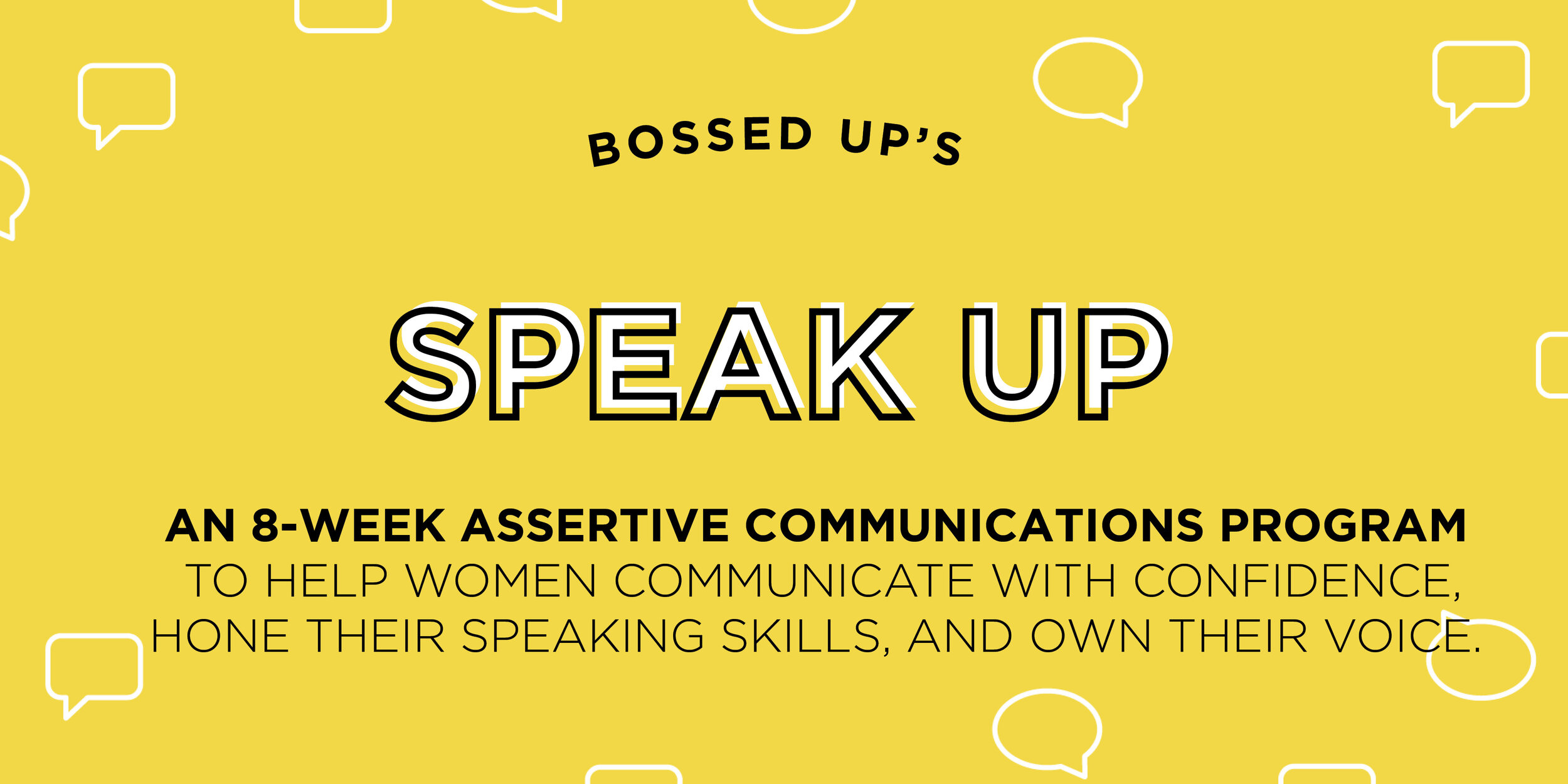How to Deal with a Chronic Interrupter
Episode 273 | Author: Emilie AriesThis election season, especially, we have seen a lot of interruption on the debate stage. I know it is not only infuriating, but a little bit embarrassing to watch grown men constantly interrupting others. I work with leaders in our Level Up program and I can tell you that none of the leaders I work with ever want to come across that way.
Most folks in positions of power and authority are not maliciously intending to interrupt others. But I can speak from experience, it's an easy bad habit to fall into if you're one who is prone to talking like myself.
If you are working with someone who is continuously interrupting others, here are three ways to deal with them and this comes right out of our Speak Up program, an eight week intensive training program for women who want to own their voice like a boss.
Call Them In
Call in the chronic interrupter by taking them aside, maybe before an upcoming meeting or after a meeting and bring this observation to their attention. In episode 167, I talk about the difference between calling in and calling out.
When calling someone in, it's always good to lead with your intention and preferably lead with a collective intention. For example:
“Hey, I’ve noticed that you really care about creating an inclusive work space and you want to hear the ideas from everyone on the team. I wanted to bring this to your attention because I’ve noticed lately that maybe it's just a matter of being excited about chiming in, but you seem to be constantly interrupting our more junior staff members. It seems to really make them feel unheard and I’m sure that's not your intention, but I wanted to bring that to your awareness. If there's any way I can help you with that habit, I’m here to help. What do you think?
By bringing it up in that way, you’re leading with collective intention and you're immediately disarming them by saying you know they have good intentions. You're also making observations. I know it's hard to speak up on someone else's behalf by making assumptions about how they're feeling, but sometimes you have to make an assumption and speak up on someone else's behalf and offer allyship.
This is not guaranteed to go over well, but those are tips to help make it more likely to go over well and hopefully you've got a boss who - even if they don't respond pleasantly in real time in that moment, it sticks with them and it makes them think and it hopefully calls their attention to a troubling habit that they can begin to change and make them better able to live up to their values.
It's a lot easier to do this when you’re saying, “Hey, you keep interrupting other people.” It’s a lot harder to say “Hey, you keep interrupting me.”
But the same exact formula can be applied in that regard as well. It's definitely harder to come across as not resentful and self-interested if you're speaking up on only your behalf, but it's still possible.
Call Them Out in Real Time
If you can't call the chronic interrupter in for any reason, call them out in real time. You can always go that route as a little more assertive and interject with, “Hey, you interrupted me. If you'll allow me to finish, I was just about to get there.”
A slightly more passive approach might be to just keep talking. Keep talking and wait for one of them to back down. That can be a little bit more passive aggressive, but it still does the trick. A milder way of calling someone out is to say, “That's a great point. I’m not quite finished yet. Let me get to that in a moment.”
Don’t give the interrupter too much air time or too much eye time. We don't want to acknowledge the interruption verbally for too long and we don't want to look at the interrupter even for more than a second because the minute your attention goes to the interrupter, you've essentially handed them the floor.
Establish Clear Communication Norms
As a team, you want to be considerate of context. Where and when does interruption happen? Who is being interrupted and what are the power dynamics at play?
If we're having a collaborative conversation in which we’re all piggybacking off of each other and blurting out ideas before they leave our brain, I want interruption to be okay. If we are giving a client presentation, interruption is way more disrespectful in that context.
Some of the communication norms that can help curb unconscious interruption include having an agenda for your meeting. It includes stating at the top of your meeting, “I want to hear from everyone today, so we want to encourage everyone's voice to be heard and interruptions to be kept to a minimum.” Saying that openly and publicly with your team at the top of your meeting is going to curb interruption and help encourage contributions from everyone across the board.
Similarly, nominating someone on the team to serve in the role of timekeeper and giving to enforce the rules empowering someone to be that figure of authority is key.
Regardless of your position or authority, anyone and everyone can create power and opportunity by calling interrupters in, calling interrupters out, and creating new communication norms that level the playing field for everyone. The result from this is that more diverse voices that are traditionally marginalized are being heard, so your team can make better, creative, and innovative decisions.
Interruption isn't necessarily bad or malicious, but when it is and when it's destructive and disrespectful, we want to have the tools to call it out in real time and not just call it in. We are all navigating the uncertainty of this pandemic still and even though we are all virtually meeting, it's so important now - more than ever - that we continue to level the new playing field that we’re all in.
If you’re tired of feeling flustered, want to increase your off-the-cuff confidence, and learn to be a more assertive, authoritative speaker, check out Speak Up, our assertive communication program to help women communicate with confidence, hone their speaking skills, and own their voice.

